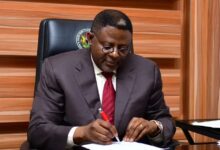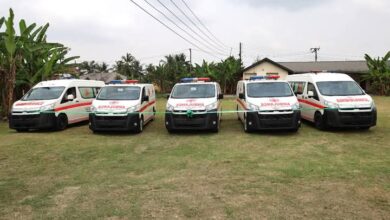Persons With Disability Call For Friendlier Health Facilities, Services

The FCT Women leader of Persons With Disability, Helen Beyioku Alase has advocated for friendlier health facilities and services for persons living with disabilities in the country.
Alase made the call on Friday, December 2, 2022 at a event organised by the Federal Ministry of Health to mark this year’s International Day of Persons With Disability.
She spoke on the challenges faced by persons with disabilities in Nigeria, especially when accessing health facilities and services.
According to her, an estimated 1.3 billion people in the world live with one form of disability or the other and over 30 million persons in Nigeria have disabilities.
She further stated that they were a significant number and can contribute their quota to national development.
The women leader revealed that the challenges persons with disabilities face were inaccessible health services, inaccessible public buildings like hospitals, banks e.t.c, inaccessible justice systems, inaccessible human services among others.
On expectations of People With Disability, she said, “this year’s theme is transformative solutions for inclusive development. We hope to see in the future, inclusive healthcare services, inclusive justice system
The Minister of State for Health, Hon. Joseph Nkama in his keynote address, stated that the number of Persons With Disabilities was on the rise due to factors such as population growth, increase in chronic conditions, and the aging process.
He added that almost everyone was likely to experience some form of disability (temporary or permanent) at some point along life’s course.
He disclosed that the December 2021 report of Sexual and Gender-Based Violence among Persons with Disabilities in Nigeria concluded that 64% of women with disabilities were more vulnerable to sexual abuse, while about 36% males were also vulnerable.
Also, in 2018 the Federal Ministry of Health (FMoH) in collaboration with the Disability Rights Advocacy centre, and Civil Society organizations developed the National Policy on Sexual and Reproductive Health and Rights of Persons with Disabilities (SRHR PWDs) with emphasises on Women and Girls.
Nkama said the FMoH worked with Deaf Women Aloud Initiative, to develop a handbook on Sexual and Reproductive Health Sign Language in Nigeria supported by partners. As part of this intervention a total number of 90 health workers were trained on a comprehensive behavioural change in the FCT and Nasarawa state to address the gaps identified in 2020 and 2022.
He promised that Government, through the Ministry of Health will continue to invest in training programmes for different levels of health professionals; doctors, nurses, midwives, community health workers, and others.
This, the minister explained was because health professionals played a critical role in supporting women and men with effective needed appropriate knowledge, such as knowledge of the health outcomes associated with different illnesses, combined with positive, non judgmental attitudes and effective communication and practical support skills:
“I believe that through committed, concerted action and effective collaboration, we can ensure adequate support from all actors to have an inclusive disability-friendly society. I wish you a successful commemoration of the 2022 International Day of Persons with Disabilities. I call on everyone to step up for disability inclusion in our country Nigeria”, Nkama concluded.
On her part, the Resident Representative of United Nations Population Fund (UNFPA) in Nigeria, Ms Ulla Mueller revealed that her Organisation was redefining a Primary Healthcare Center in the Federal Capital Territory (FCT) to be disability friendly:
“UNFPA will continue to scale-up the work we do to address GBV in the development and humanitarian sector, support women to become empowered to manage their reproductive careers through the availability of family planning methods, integrate women living with disabilities into our programming including in partnership with the FCT where we are redefining a PHC at Karomajiji to be disabilityfriendly (to be launched by the FCT on December 5).
“We commit this in line with our three transformational results of ensuring Zero Unmet Need for Family Planning, Zero Maternal Deaths and Zero Gender Based Violence and Harmful Practices”, she said.






